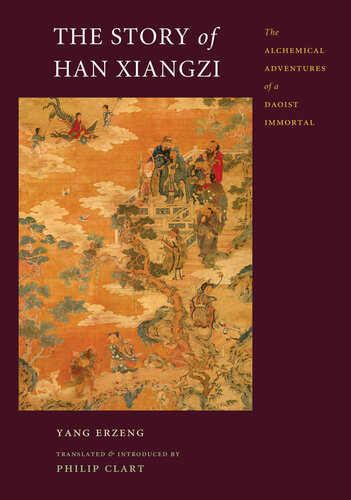

Most ebook files are in PDF format, so you can easily read them using various software such as Foxit Reader or directly on the Google Chrome browser.
Some ebook files are released by publishers in other formats such as .awz, .mobi, .epub, .fb2, etc. You may need to install specific software to read these formats on mobile/PC, such as Calibre.
Please read the tutorial at this link: https://ebookbell.com/faq
We offer FREE conversion to the popular formats you request; however, this may take some time. Therefore, right after payment, please email us, and we will try to provide the service as quickly as possible.
For some exceptional file formats or broken links (if any), please refrain from opening any disputes. Instead, email us first, and we will try to assist within a maximum of 6 hours.
EbookBell Team

4.0
96 reviewsIn
this seventeenth-century Chinese novel, Han Xiangzi, best known as one
of the Eight Immortals, seeks and achieves immortality and then devotes
himself to converting his materialistic, politically ambitious Confucian
uncle—Han Yu, a real historical figure—to Daoism. Written in lively
vernacular prose interspersed with poems and songs, the novel takes its
readers across China, to the heavens, and into the underworld. Readers
listen to debates among Confucians, Daoists, and Buddhists and witness
trials of faith and the performance of magical feats. In the mode of the
famous religious novel Journey to the West, The Story of Han Xiangzi uses
colorful characters, twists of plot, witty dialogue, and action
suitable for a superhero comic book to convey its religious message—that
worldly life is ephemeral and that true contentment can be found only
through Daoist cultivation.
This is the first translation into any Western language of Han Xiangzi quanzhuan (literally, The Complete Story of Han Xiangzi). On one level, the novel is a delightful adventure; on another, it is serious theology. Although The Story of Han Xiangzi’s
irreverent attitude toward the Confucian establishment prevented its
acceptance by literary critics in imperial China, it has remained
popular among Chinese readers for four centuries.
Philip
Clart’s introduction outlines the Han Xiangzi story cycle, presents
Yang Erzeng in his social context, assesses the literary merits and
religious significance of the text, and explores the theory and practice
of inner alchemy. This unabridged translation will appeal to students
of Chinese literature and to general readers who enjoy international
fiction, as well as to readers with an interest in Daoism.